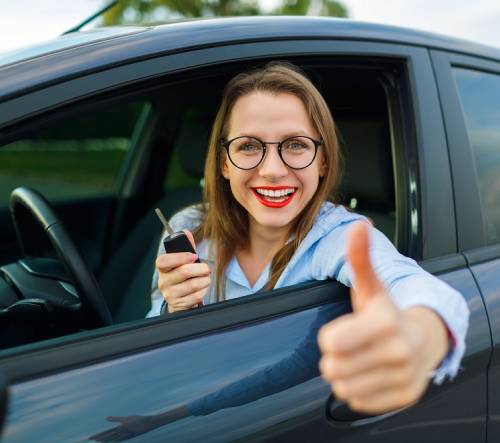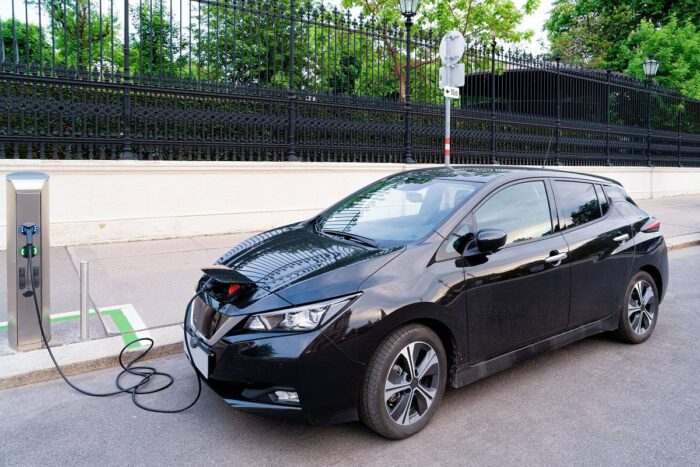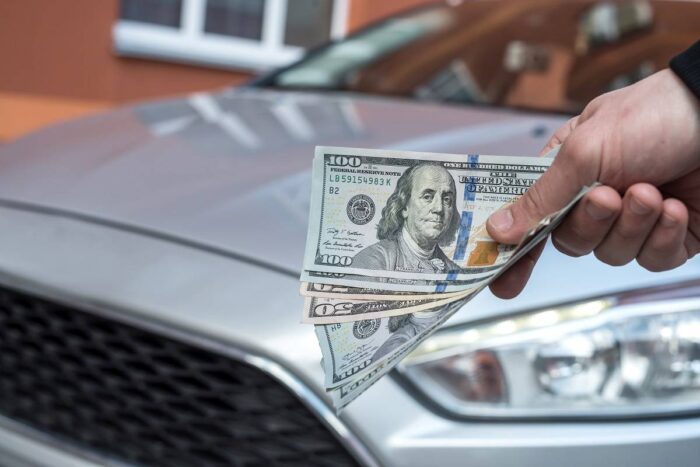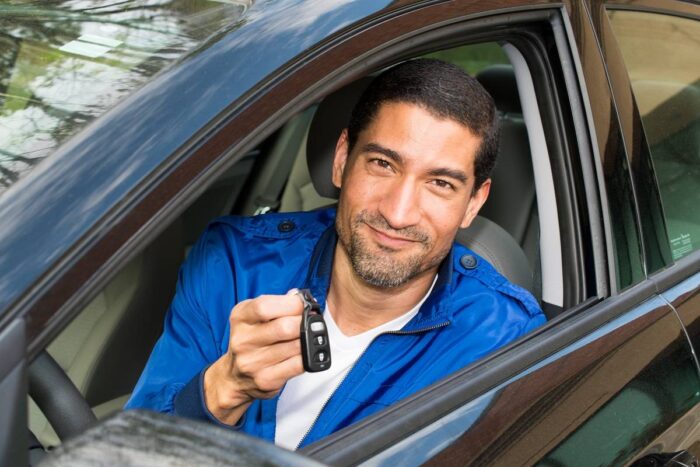Americans require a vehicle to get around. Your car will likely be your primary mode of transportation unless you live near a good public transportation system. When inflation is at its highest level in decades, you pay more for your car than its price tag.
Due to inflation and supply chain issues, new and used car prices have increased significantly. In addition to the price you pay when you buy a car, there are many other factors to consider. Statista estimates the average price of a used car at $28,200 as of June 2022. Based on the most recent Kelley Blue Book figures, a new car costs an average of $48,301.
Insurance, gas, maintenance, and other costs are all included in owning a car. According to an AAA study, car ownership will cost $10,728, a significant increase of over $9,666 in 2021.
In the current economy, low-income families and individuals cannot afford to purchase cars due to the cost of owning a car and inflation hampering the possibility of purchasing one. Low-income applicants can, however, take advantage of programs that help them get a car.
If you are a single father without a home, read our blog post on five housing programs for needy single fathers.
Charities And Organizations That Give Away Free Cars

Life is significantly easier and more convenient when you have your vehicle. The convenience of owning a car allows you to commute anywhere you need to go. If you have your car, you no longer need to worry about public transportation slowing down due to inclement weather if you need to go grocery shopping.
Many daily tasks can be accomplished with the help of a car. An automobile can significantly simplify your life if you live a busy lifestyle. Most people need a car for transportation, not as a luxury. Due to supply chain issues and inflation, purchasing or owning a car is no longer affordable in today's market. Low-income individuals and families who cannot afford a car can get a free or discounted car from non-profits and charities.
1800 Charity Cars
Low-income families can obtain free cars through 1-800-Charity Cars. They aim to provide vehicles for those in need by raising funds and taking in donated vehicles. You can find out if you qualify by visiting their eligibility criteria page. You must then complete the online application form if you meet the criteria. We will ask you to tell them why the car is so important to you.
The organization reaches out to verify the needs of those who deserve a car after receiving a donated car. People with household incomes equal to or less than 200% of the federal poverty level, a genuine need for a car, and the ability to afford insurance and the fees associated with car ownership are eligible to apply for a free car. 1-900-Charity car prioritizes the following group of people for their gift of free cars;
- Domestic abuse victims
- People afflicted by calamities
- Those living in temporary transitional housing
- Disabled people
- People with medical needs.
Modest Needs
Unlike the other sites listed here, Modest Needs does not distribute free vehicles. Modest Needs' mission is to provide financial assistance to low-income families in need. Modest Needs offers loans for car purchases to help you afford the car you want.
You must register with them online before you can apply for help. Your Modest Needs account will be your primary means of communication during the application process.
Registration is quick, easy, and free with Modest Needs. Click the 'Register' link on their applicants' page and follow the instructions. You should be able to register with them within five minutes.
You must have an active email account for your Modest Needs account to work. Log in to your Modest Needs account and click the 'Apply for Help Now' button at the bottom of this page to begin your application. They'll redirect you to their 'Apply for Help' page, where you'll find their application link and a few final tips.
Cars4Christmas
C4C, or Cars 4 Christmas, is a non-profit organization based out of Kansas City, Wichita, Omaha, St. Louis, and Springfield in the Midwest. To provide transportation for those going through hardships and in need of a vehicle, the organization focuses on helping those in need.
To apply for a car for yourself or someone you know, complete the online application, which asks for a story about how the car will improve your life or theirs. Typical recipients include people with ill children, disabilities, and medical conditions and those in transitional housing.
Cars 4 Christmas also has a partner organization called Cars 4 Heroes that focuses on providing vehicles for veterans in need. Disadvantaged individuals or families going through a difficult time, need basic transportation, and cannot obtain a car alone are encouraged to apply.
Vehicles For Change
Providing extremely low-cost used cars to needy families in Maryland, Michigan, Virginia, and DC, Vehicles for Change serves the needs of those in need. Their car purchase requirements include having a steady job and having the funds to cover the tax, title, and registration.
Members of their partner social service and job readiness agencies are also eligible to participate in the Vehicles for Change's car award program. In addition to providing low-interest loans to eligible low-income families, the program also provides vehicles for qualifying low-income families.
Applicants cannot apply directly for this program. They need to get their caseworkers or their representative agencies to apply on their behalf.
Good News Garage
A free car can also be found at Good News Garage in Massachusetts, New Hampshire, or Vermont, which serves those in need there. You must check each state's criteria to see if you are interested in their state-funded Wheels to Work programs.
The JumpStart program offers affordable, subsidized, refurbished vehicles to qualified working people who do not qualify for Wheels to Work. You can periodically check its website to see if applications are currently being accepted, but it is not accepting new applications.
Cars For Heroes
For many Americans, access to jobs and health care is determined by the availability of public transportation. These people often do not have access to public transit because they live outside of public transit zones or need to travel to places far from public transit.
Their journey to their destinations is forced to be long and tedious. First responders, military veterans, and their families can receive free used cars through Cars4Heroes, a 501(c)(3) non-profit organization.
To apply, you must submit a written application that includes the years of service, the branch of the military that you served in, and some personal information about you. You can receive a free car later if you don't receive one on your first try because your application will be kept on file for three years.
Goodwill Workers On Wheels
People usually think of clothing, books, and baby items when they think of Goodwill. Cars can also be donated if they are still in good condition. The car will not be shipped or transported to you; you must arrange transportation yourself. Providing low-income working families with cars is one way Goodwill helps them keep their jobs and maintain family stability.
As part of its mission to provide financial stability to low-income adults, Goodwill Industries sponsors this program. There's just one catch: you already have to be employed to be eligible for this program. Workers on Wheels support people already working and caring for their families. If you wish to apply for the program, you must be employed and show a consistent history of employment in a full-time position.
First Wheels
The First Wheels program provides vehicles as an employment and workforce development tool. Parents with small children on SNAP, working parents with small children in educational programs, or low-income parents can benefit from the initiative.
Revolving loans are available to help you purchase a car through this program. The loan does not require a down payment or interest payments. In addition, the monthly payment is low. Through work and education, the program helped families achieve self-sufficiency.
The Tennessee Department of Human Services can provide you with a loan packet. Applicants will be evaluated based on their driving records and credit reports. If you need cosmetic dentistry but cannot afford it, read our article on everything to know about cosmetic dentistry grants.
How To Make Car Ownership Possible

Reliable transportation is a modern necessity, and convenience is critical in people's daily routines. Cars help save time when commuting from one place to another, make traveling more efficient, develop and promote tourism, create job opportunities, enhance the standard of life, and make life easier.
Low-income people can use the following tips and suggestions to finance a car.
- Improve your credit score: Before a car dealership checks your credit report, identify the items hurting your score, pay off past-due accounts, dispute credit report errors, and add positive information.
- Check the interest rate: Low-income borrowers generally have a higher loan interest rate due to poor credit. However, any rate over double the national average should be considered cautiously. Your monthly payment will be affected by the loan rate, as well as the price of your car.
- Make a bigger downpayment: Higher interest rates will further reduce your ability to obtain a car loan, and your credit history will greatly affect it. You can choose from a wider selection of vehicles if you pay down to offset interest, taxes, and fees.
- Pre-approval can help you shop more realistically if you have an amount pre-approved. Interested in applying for a car loan and would like to know the pre-approval process? Contact your bank or credit union.
Frequently Asked Questions
Low-income people ask the following frequently asked questions about programs that help them get a car.
There are other options, such as car finance, if you cannot afford to buy a car upfront. Finance for cars, such as personal contract purchase or personal contract hire, is convenient but can be costly over time due to interest payments.
Several individuals and organizations are willing to help low-income individuals obtain a car if they meet certain criteria. Individual donors, charitable organizations, and faith-based organizations all contribute to these causes. Vehicle donations are popular among donors because they are tax-deductible.
Because of their impeccable credit history, welfare recipients can sometimes get loans for expensive cars. They track their expenses and save as much as possible to get out of tight financial spots without taking out loans.
With the rising prices of cars due to global supply chain issues, buying a car is becoming a distant dream for most low-income American families. In the past, they could afford to buy a used car to fulfill their basic needs, but this is no longer possible.
There are, however, different charities and programs that help get a car. If you are earning what the programs mentioned earlier consider low-income and fulfill their eligibility criteria. There are also other programs to help get a car.
For more information on the different assistance programs offered by the government and private entities, check out the rest of the resources on Gov-Relations. If you are a struggling single mother, read our article on helpful government assistance programs for single mothers.







